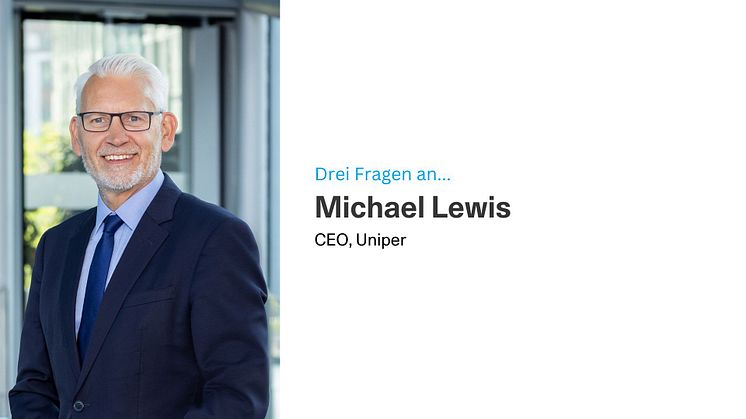
Copyright: Uniper
News -
Three questions to Michael Lewis, Uniper
-
Uniper has undergone significant transformation in recent years. What role will the company play in a climate-neutral energy system going forward?
We see ourselves as a bridge builder between security of supply and climate protection – technology-neutral, pragmatic, and with a focus on maintaining the international competitiveness of Germany as an industrial hub. A climate-neutral energy system is the goal – and on the path toward it, we must support and strengthen industry. That requires companies like Uniper: with a strong portfolio of flexible generation, transformation projects, and trading expertise – right where supply security and transformation converge.
-
For a secure and climate-neutral power supply, both the conversion of existing gas-fired power plants to hydrogen and the construction of new H₂-ready plants are essential. How concrete are Uniper’s plans in this area?
We see ourselves as a bridge builder between security of supply and climate protection – technology-neutral, pragmatic, and with a focus on maintaining the international competitiveness of Germany as an industrial hub. A climate-neutral energy system is the goal – and on the path toward it, we must support and strengthen industry. That requires companies like Uniper: with a strong portfolio of flexible generation, transformation projects, and trading expertise – right where supply security and transformation converge.
-
The debate over the planned power plant strategy package is dragging on – clear investment signals are still missing. What do you expect from the federal government to actually get the announced expansion of H₂-ready power plants moving?
As an energy supplier serving large customers, we need investment and planning certainty. The government plays a key role in designing a framework that ensures affordable, reliable, and low-emission energy. A lot of time has already passed, and if we really want to close the looming supply gap, we need to act pragmatically. Ideally, a draft of the new Power Plant Security Act should be presented before the summer and passed in the fall. Tenders should then follow swiftly – ideally by the end of the year.

